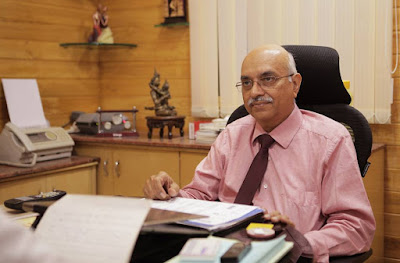Male & Female Infertility Sexual Problems:
Discuss your Sex Problems with a
Good & Best Sexologist / Sexology Doctor in Chennai. Otherwise it can spoil your Personality. A sexual problem or sexual dysfunction, refers to a problem during any phase of the sexual response cycle that prevents the individual or couple from experiencing satisfaction from the sexual activity. The sexual response cycle has four phases: excitement, plateau, orgasm, and resolution.
While research suggests that sexual dysfunction is common (43% of women and 31% of men report some degree of difficulty), it is a topic that many people are hesitant to discuss. Fortunately, most cases of sexual dysfunction are treatable, so it is important to share your concerns with your partner and
sexologist doctor in chennai
What Causes Sexual Problems ?
Sexual dysfunction can be a result of a physical or psychological problem.
Physical causes: Many physical and/or medical conditions can cause sexual problems. These conditions include diabetes, heart disease, neurological diseases, hormonal imbalances, menopause, chronic diseases such as kidney disease or liver failure, and alcoholism and drug abuse. In addition, the side effects of certain medications, including some antidepressant drugs, can affect sexual desire and function.
Psychological causes: These include work-related stress and anxiety, concern about sexual performance, marital or relationship problems, depression, feelings of guilt, and the effects of a past sexual trauma.
Who Is Affected by Sexual Problems ?
Both men and women are affected by sexual problems. Sexual problems occur in adults of all ages. Among those commonly affected are those in seniors, which may be related to a decline in health associated with aging.
Sexual Problems in Men :
Discuss your Sex Problems with a Sex Sexologist/Sexology Doctor as early as possible otherwise it can spoil your Personality. A sexual problem, or sexual dysfunction, refers to a problem during any phase of the sexual response cycle that prevents the individual or couple from experiencing satisfaction from the sexual activity. The sexual response cycle has four phases: excitement, plateau, orgasm, and resolution.
While research suggests that sexual dysfunction is common (43% of women and 31% of men report some degree of difficulty), it is a topic that many people are hesitant to discuss. Fortunately, most cases of sexual dysfunction are treatable, so it is important to share your concerns with your partner and doctor.
What Causes Sexual Problems ?
Sexual dysfunction can be a result of a physical or psychological problem.
Physical causes: Many physical and/or medical conditions can cause sexual problems. These conditions include diabetes, heart disease, neurological diseases, hormonal imbalances, menopause, chronic diseases such as kidney disease or liver failure, and alcoholism and drug abuse. In addition, the side effects of certain medications, including some antidepressant drugs, can affect sexual desire and function.
Psychological causes: These include work-related stress and anxiety, concern about sexual performance, marital or relationship problems, depression, feelings of guilt, and the effects of a past sexual trauma.
Who Is Affected by Sexual Problems ?
Both men and women are affected by sexual problems. Sexual problems occur in adults of all ages. Among those commonly affected are those in seniors, which may be related to a decline in health associated with aging.
Male & Female Infertility :
Infertility refers to a condition where there is no pregnancy, even after one year of regular sexual intercourse. It covers a broad spectrum of conditions which can be minor or serious. Infertility related to men is initially investigated usually with a physical examination along with a discussion about past and present medical history. A physical exam determines the general health of both partners. The doctor will pay special attention to the outer sex organs as well as characteristics such as breast development and body hair in both partners to check for structural abnormalities or signs of possible hormone problems. The medical history gathers information that may suggest causes for infertility in each of the partners. Issues that will be discussed during the medical history apply to both the man and the woman.
The most common cause of male infertility is low sperm count or absence of sperm in the semen.
Causes of low sperm count may include
• Hormonal problems in the testicles or pituitary gland.
• Genetic factors.
• Testicular injury, infection or failure.
• Drug use.
Environmental factors including chemical pollution and exposure to radiation. Medical conditions such as a varicocele in the testicles, blocked ejaculation due to a surgical vasectomy, absence or blockage of a vas deferens due to birth defect or infections (The vas deferens is a narrow, muscular tube that connects the testicles to the prostate gland), retrograde ejaculation (the ejaculation of semen into the bladder rather than out through the penis), Chromosomal problems.
Problem caused by the immune system after an infection, vasectomy or injury to the testicles. The man may develop, an auto-immune response in which his immune system treats his sperm as 'foreign' and produce antibodies against them.
The Sexology treatments include drug therapy or possibly surgery to improve the situation. There is no effective treatment for lack of sperm. Low sperm count can be treated with artificial insemination or in vitro fertilization with partner or donor sperm. A testicular biopsy is done for men who have no sperm in the ejaculate to find out whether they have immature sperm in the testes. In vitro fertilization, intrauterine insemination, or gamete intra_fallopian transfer are done for reproduction in such cases. For retrograde ejaculation (the ejaculation of semen into the bladder rather than out through the penis), sperm may be recovered from the bladder, washed, and used for insemination. Surgery can be done to reverse a vasectomy or to repair enlarged veins in the scrotum (varicocele repair). Surgery also may be done to correct blockages or absence of the vas deferens. before choose sexual treatment, you must discuss with your partner for
sexology treatment clinic in chennai.
How to Prevention for Sexual Infertility Problems:
1. Tobacco usage reduces sperm count so avoid smoking.
2. Avoid exposure to chemicals and drugs.
3. Excessive alcohol use may damage eggs or sperm, so keep it to the limit.
4. Limit sexual partners and use condoms to reduce the risk of getting a sexually transmitted disease.
5. Maintain a body weight close to the ideal for your height to reduce the possibility of hormone imbalances.
























